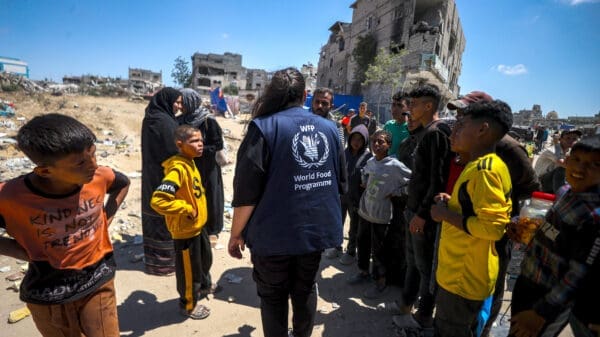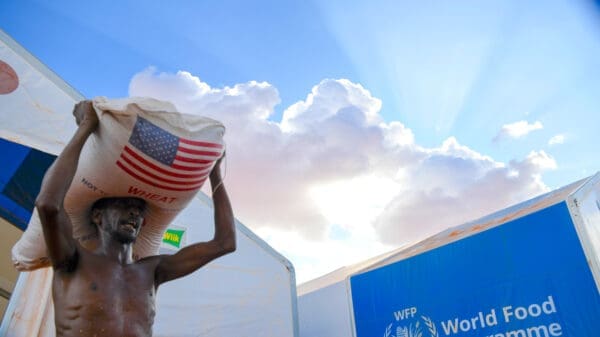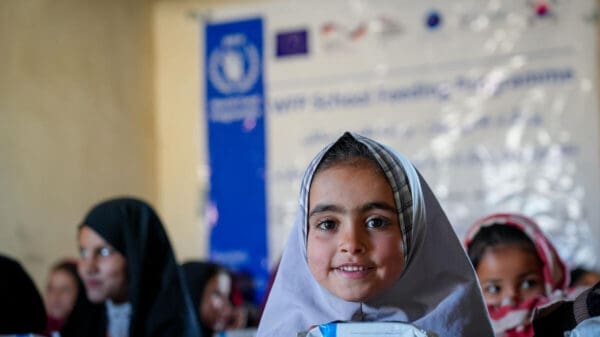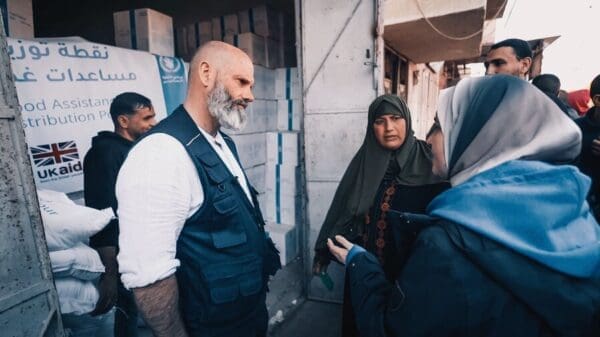Meet Immaculée, a Small-Scale Farmer in Rwanda Growing Her Business with the Help of WFP, the Farm to Market Alliance and a Cow
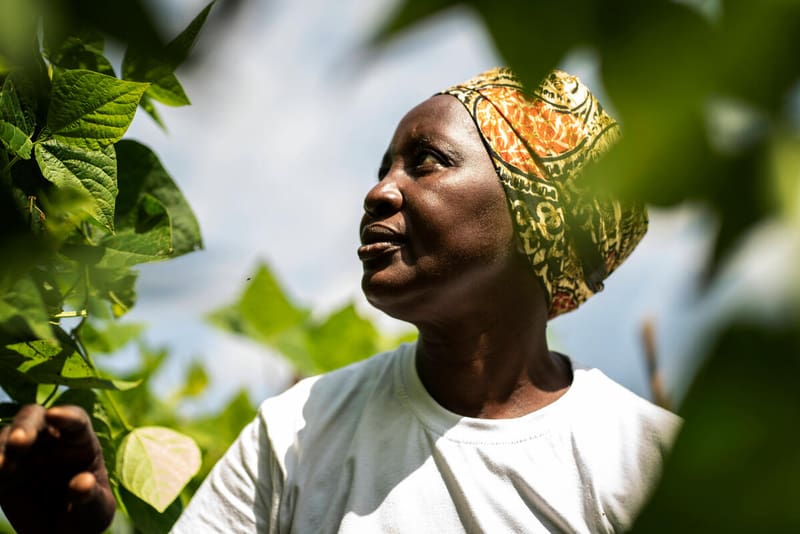
There was a time when Immaculée Mukarusanga relied on farming just to feed her two teenage daughters.
These days, she grows enough beans, corn and potatoes to sell to a range of buyers in Nyaruguru district, in Rwanda’s Southern Province, including the United Nations World Food Programme (WFP). She has also bought cows and is exploring ways of further developing her agricultural and livestock produce.
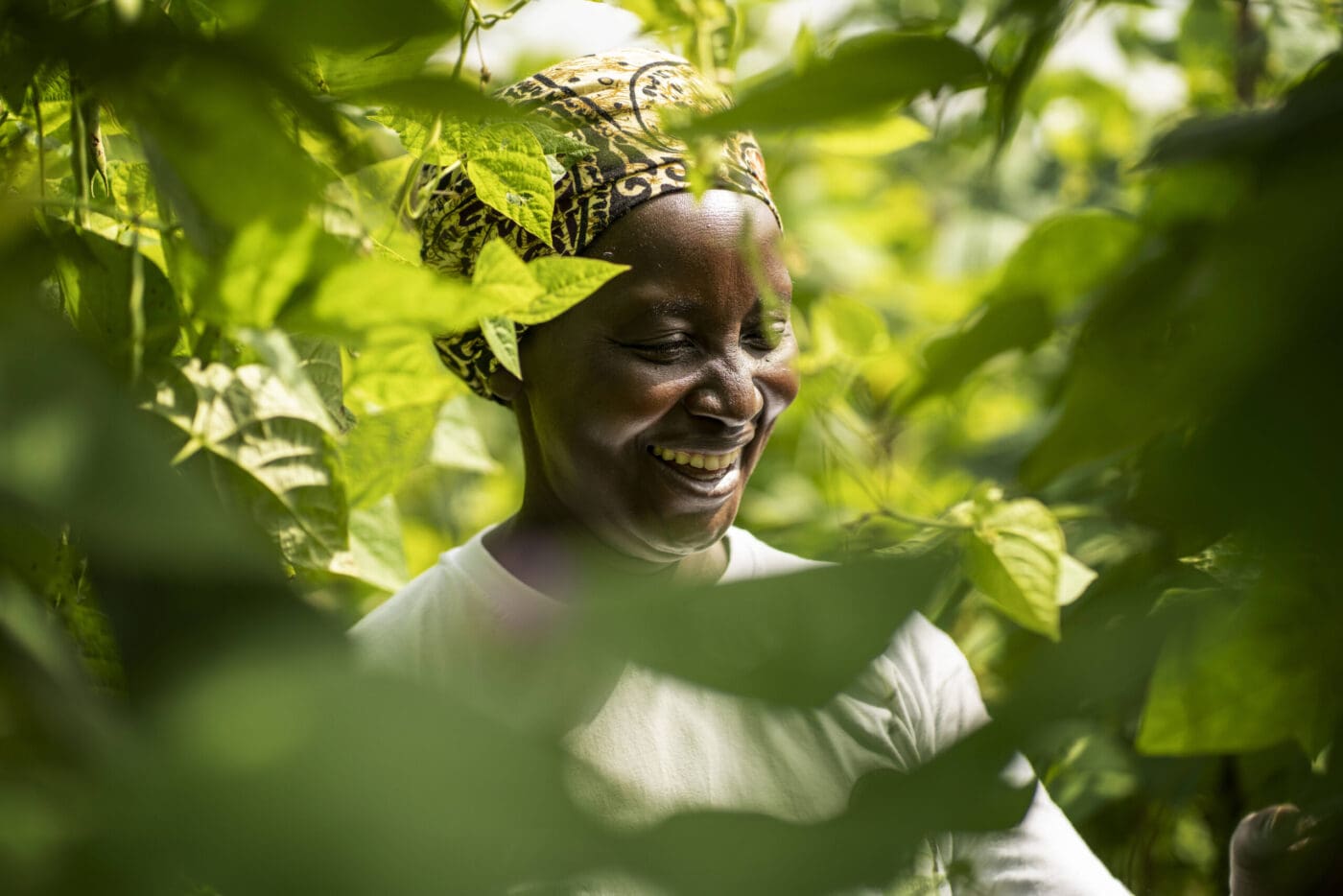
Immaculée Mukarusanga has seen a turnaround in her business, thanks to the Farm to Market Alliance.
The turnaround was made possible through the Farm to Market Alliance – comprising six global agri-focused organizations including the U.N. World Food Programme – which provided training on improving crop quality and volume, as well as reduced losses after harvest.
Immaculée also has crop insurance to protect her from climate-related threats such as droughts or floods. She secured this through the Government’s National Agricultural Insurance Scheme, again with support from the alliance.
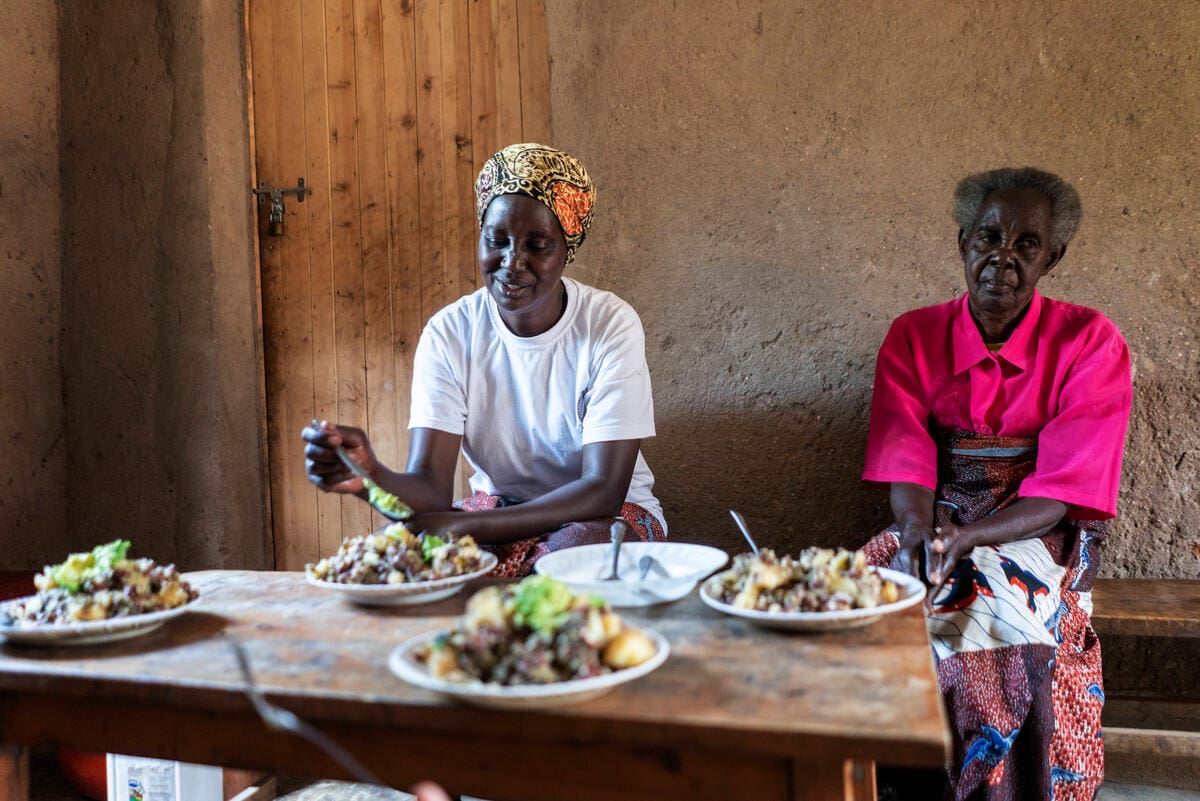
Immaculée serves food to her teenager daughters and enjoys the meal with her mother.
“We get good markets for our corn and beans, we get money to support our families and we can pay medical insurance on time – we have stability,” says Immaculée. “Before joining this farmer’s cooperative, I didn’t have the skills to produce enough for the market. I am also happy because in a cooperative like this, we learn from each other and support one another.”
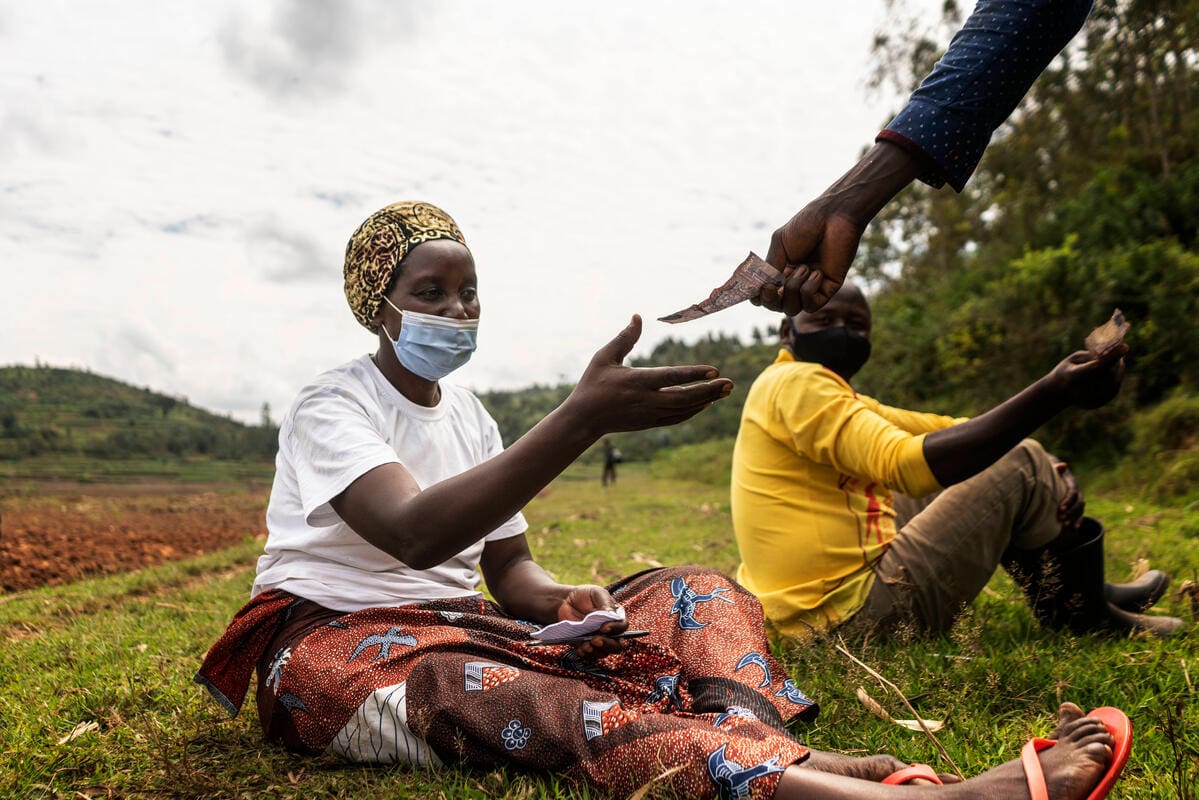
Immaculée says the support meant she could also buy a cow and join a savings group, allowing her to plan more for the future.
“I’m happy I produce food to sell in good markets and I’m happy to have milk from my cows,” she adds. “My children and all my family drink milk now.”

Immaculée primarily grows iron-rich, single-variety beans then sells them through the farmers’ cooperative. The U.N. World Food Programme buys beans from the cooperative for its home-grown school feeding program in Rwanda. In fact, it has become one of the group’s main buyers.
“The U.N. World Food Programme not only trains us, but also comes back to buy our produce,” says Immaculée. “Before, getting buyers was not so smooth. What excites me most is knowing that the U.N. World Food Programme buys this produce to distribute in school meals. It feels good to know that your produce is reaching children in your very own community.”
She explains how the project also increased farmers’ resilience to the effects of COVID-19: “During lockdown, we couldn’t sell any produce, but we were lucky to be able to take back and eat the produce we sent to the cooperative. We didn’t make any money but at least we got some food to eat.”
The Farm to Market Alliance is comprised of the following members: the U.N. World Food Programme, the Alliance for a Green Revolution in Africa, Bayer, Rabobank, Syngenta and Yara International ASA. It forms private and public sector partnerships to deliver products and services tailored to the needs of farmers. The goal is to sustainably improve small-scale farmer incomes and resilience, and to develop commercial opportunities for all groups along the value chain.
This story originally appeared on WFP’s Stories on September 9, 2021 and was written by Annet Mutesi and Paul Anthem.
